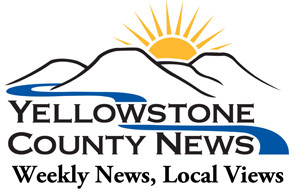Originally published in the print edition of the Yellowstone County News.
BILLINGS — One of the most significant differences in positions between the two candidates running for mayor of Billings is their support for a proposed local option tax. A local option tax is essentially a limited sales tax, restricted to a specific city or county and assessed on some goods and services, for the purpose of increasing revenue for local government.
Candidate Bill Cole is an enthusiastic supporter, and in fact, in his previous role as president of the Billings Chamber of Commerce, he helped lead the charge in support of a bill in the last state Legislature that would have permitted a community to ask voters if they want to adopt a local option tax.“
Reasonable minds can differ whether a local option tax is good, but I think it is a pretty clear case that communities should be able to decide for themselves,” he said in an interview with the Yellowstone County News.
The concept of a local option tax has been introduced in several past legislative sessions, led primarily by the Billings Chamber of Commerce.
Supporters, like Cole, see the tax as a means to help finance projects that they believe would improve the quality of life in Billings and attract young people to work here.
Candidate Jeff Essmann, who has dealt with the issue many times as a state legislator, concedes to having mixed views about a local option tax. Essmann said, “I know that I have constituents – especially senior citizens – who are interested in reducing property taxes and supported the concept of a local option tax to spread that burden to others.” Because of that, Essmann said he “took a number of runs at it,” beginning in 2006. “But the purpose was to reduce the property tax burden.”
“I have a real problem with the local option sales tax that the chamber and my opponent pushed because the purpose is different,” he continued. “Their purpose is generating new revenue for the government… that’s where I draw a line.”
Cole is supportive of a local option tax as a means to replace revenue that communities used to get from the federal government. “Those days are over,” said Cole. “If we want to solve local problems, we are going to have to look more and more to local solutions.”
A reoccurring thought for many is that other than levying more property taxes, there is a group of people who use the amenities of the community but do not pay for them – tourists. They spend $400 million in Billings every year, according to Cole.
Those local projects that Cole sees as necessary have to do with building “a community that can compete, not just regionally, but nationally with other cities, to attract young people to grow Billings in the future,” he explained.
Cole cites projections that estimate that Billings is going to need to fill 32,500 job openings in the next 10 years.
“Most will be filled with people 25 to 40 years old,” he said, and they will be hard to draw when most areas of the country have 3 to 4 percent unemployment.
“It is a workers’ market,” Cole said. “In order to attract those — the most skilled and most educated — they need to read more



